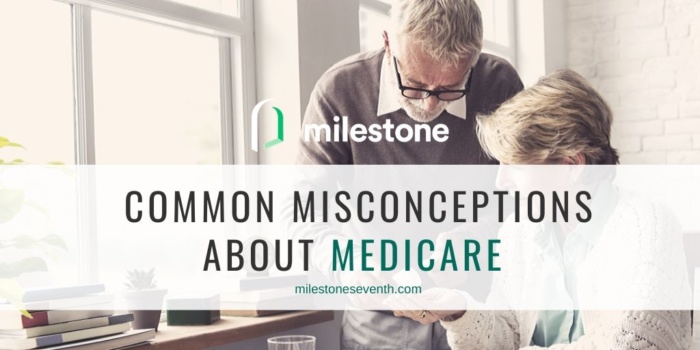There are many misconceptions that exist around our country’s Medicare program. Many people miss their enrollment period, face unnecessary fees, go without coverage, and even lose money due to misinformation. Below you’ll find a brief definition, a quick guide to the most common misconceptions about Medicare, and the truth behind the myths.
What is Medicare?
Medicare is a federal government-provided program for health insurance. Its purpose is to help certain groups of people with their medical costs.
Common misconceptions
The following are the most commonly believed misconceptions about Medicare and the truth behind the myths:
Medicare is only for people aged 65 and older
While many people believe they can only enroll in Medicare once they are 65 years of age or older, the truth is there are more ways to qualify. If you are under the age of 65 and have certain disabilities, you may be eligible. For example, if you suffer from permanent kidney failure that requires dialysis or a transplant, you may be able to enroll in Medicare regardless of your age.
Medicare is a primary payer and covers all medical expenses
Many people often misconceive Medicare as free healthcare. Medicare is not free and does not cover all medical expenses, as it is a secondary payer. What this means is that you have to pay a monthly premium for certain parts of Medicare. You also have limitations on which medical expenses the program covers and which you’ll need to pay out of pocket. If you have health insurance through work or a spouse, your insurance will be first responsible for paying for medical expenses, and Medicare will cover the costs uncovered by your primary insurance (if any).
If you will be receiving a settlement from a personal injury lawsuit, you might want to consider setting up a Medicare set aside trust account. This trust account will cover your medical costs that Medicare would normally cover. It’s a voluntary arrangement that demonstrates a good-faith effort to fund future care without relying solely on Medicare. It also ensures one can continue to receive Medicare coverage.
Pre-existing conditions can’t disqualify you from eligibility
Pre-existing conditions do not disqualify you from Medicare eligibility, contrary to what many may think. Medicare is a program designed to help those in need, regardless of medical history. Everybody, provided they qualify, is automatically eligible for Medicare coverage regardless of pre-existing medical conditions.


